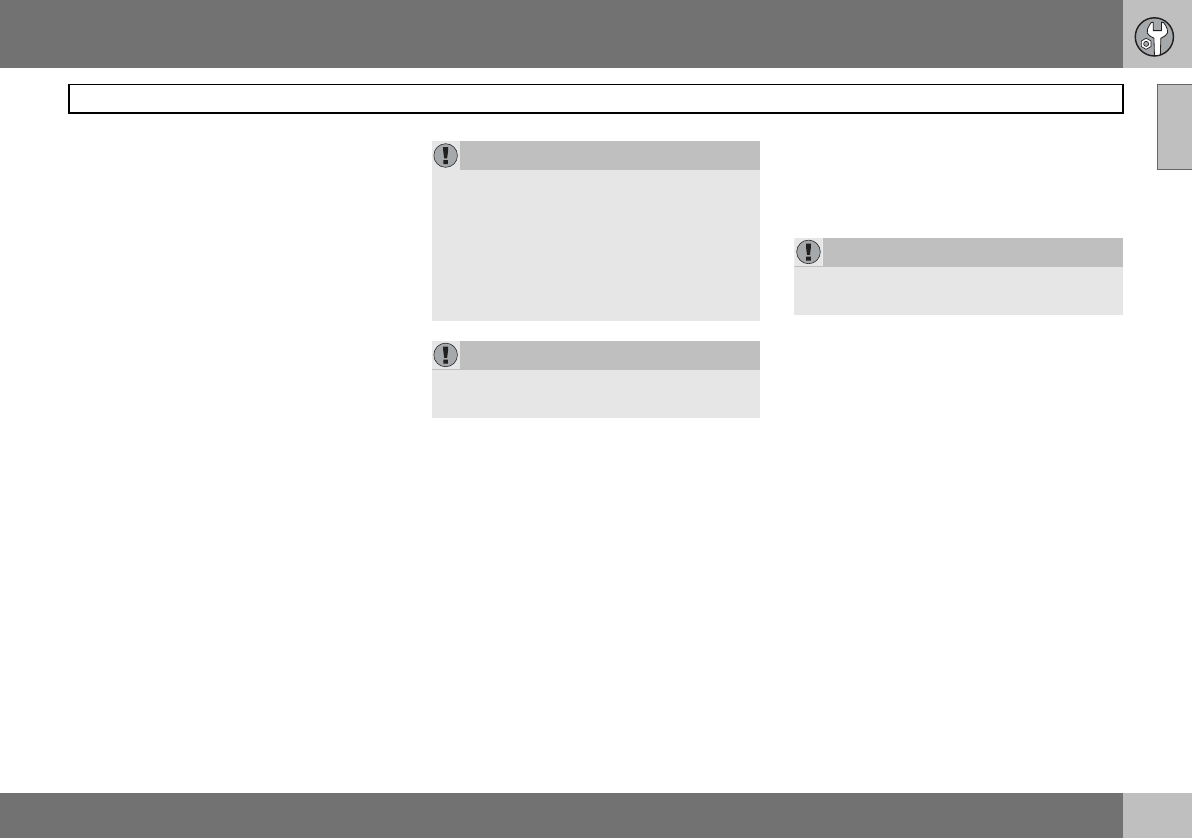
09 Maintenance and service
173
Diesel
09
Fuel system
Diesel must fulfil the EN 590 or JIS K2204
standards. Diesel engines are sensitive to
contaminants, such as high volumes of sul-
phur particles for example. Only use diesel
fuel from a well-known producers. Never use
diesel of dubious quality.
At low temperatures (–40
C to –6
C), a par-
affin precipitate may form in the diesel fuel,
which can lead to ignition problems. The ma-
jor oil companies produce a special winter-
grade diesel for temperatures around freez-
ing. This fuel is less viscous at low tempera-
tures and reduces the risk of paraffin precipi-
tate.
The risk of condensation in the fuel tank is re-
duced if the tank is kept well filled. When re-
fuelling, check that the area around the fuel
filler pipe is clean. Avoid spilling fuel onto the
paintwork. Wash off any spillage with deter-
gent and water.
Empty tank
No special procedures are required if the
tank runs dry. The fuel system is bled auto-
matically if the ignition switch is kept in
position II for approx. 60 seconds before the
start attempt.
Draining condensation from the fuel
filter
The fuel filter separates condensation from
the fuel. Condensation can disrupt engine
operation.
The fuel filter must be drained at the intervals
specified in the Service and Warranty Book-
let or if you suspect that the car has been
filled with contaminated fuel.
IMPORTANT
Diesel type fuels which must not be used:
special additives, Marine Diesel Fuel, fuel
oil, RME (Rape Methyl Ester) and vegetable
oil. These fuels do not fulfil the requirements
in accordance with Volvo recommendations
and generate increased wear and engine
damage that is not covered by the Volvo
warranty.
IMPORTANT
For model year 2006 or later the sulphur
content must be a maximum of 50 ppm.
IMPORTANT
Certain special additives remove the water
separation in the fuel filter.


















